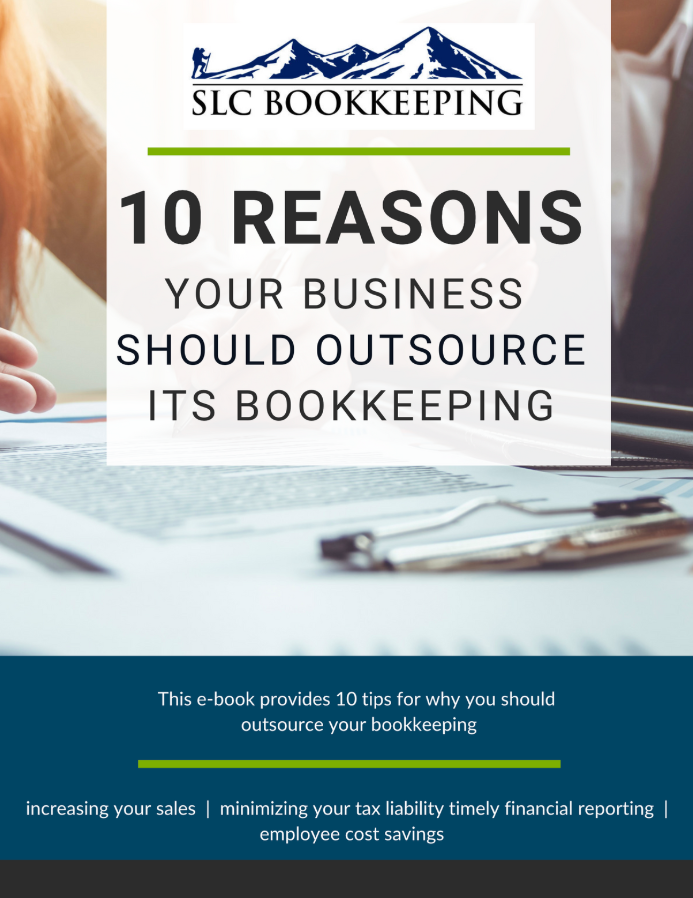9 Small Business Bookkeeping Actions That Promote Growth
 If your small business bookkeeping is not providing you with valuable information, you are missing out on a key business tool. Bookkeeping should not be a drag or a chore; it should be a business tool that promotes growth. Here are 9 things you can do for your small business bookkeeping that promote growth.
If your small business bookkeeping is not providing you with valuable information, you are missing out on a key business tool. Bookkeeping should not be a drag or a chore; it should be a business tool that promotes growth. Here are 9 things you can do for your small business bookkeeping that promote growth.
1. Update the books
The first step toward turning your bookkeeping system into a growth tool is to update it. All too often, the bookkeeping gets pushed to the back burner. I mean, let's be honest, bookkeeping is not sexy (at least not yet). So when you see it on your to do list, you cringe and then often find something else to do. Before you know it, you are 3 months behind and literally running your business blind. If you can't find the time or don't want to make the time for your books, find someone who will do it for you.
2. Reconcile
The next step is to reconcile your QuickBooks accounts. One mistake we often see is that a business owner will reconcile the checking account and think that the books are up to date. Make sure to reconcile all of your bank accounts, credit cards, loans, and liabilities. Want to really impress your accountant? Reconcile your payroll liabilities as well.
3. Review assets
Take a few minutes to look at the details of your asset balances. A common mistake is to book a small transaction to an asset account that should really be expensed. This happens when the QuickBooks renaming rules automatically recall the last transaction coding for a particular vendor. You may go to Office Depot and buy a computer (asset) and then the next week go back and get some paperclips (expense). Set an asset threshold limit with your CPA and make sure you don't have any small transactions coded as an asset.
4. Professional review
Review your bookkeeping with your CPA, your bookkeeper, or both. A good internal audit can go a long way toward ensuring accuracy of the books. We want to make sure that the financial reports we are looking at are accurate. A professional review is a great time to clear up any questionable transactions that you were unsure how to properly code.
5. Identify key metrics
Identify some key metrics that are specific to your business. Think outside of the normal, everyday metrics commonly used by your competitors. What specific, financial metrics would truly help you run your business? We are looking for "AH HA!" moment types of metrics.
6. Create custom reports
Now that your books are updated and accurate and you have identified some key metrics, you should create some custom reports around those metrics. When owners don't see a standard QuickBooks report that delivers the information they desire, they give up. But reports can be customized to meet your specific needs and give you valuable information. There are several custom reports I look at every month and I don't know how we could make good business decisions without them.
7. Forecast financial future
Don't fall into the trap of obsessing over the past; instead, concern yourself with the future. It doesn't matter if you had a great month or a terrible month last month because it is over. How does that affect the future? Take your actual performance and what you know about the future of your business and blend them to build a financial forecast. A good forecast practically gives you a glimpse into the future. Instead of running on gut feelings, run your business based on data and forecasts. A financial forecast is one of the most useful items you can develop. You should re-forecast every single month based on what happened that month so that you can get a glimpse into the future. If you don't like what you see, make some changes now before things happen.
8. Review with key management
If you have followed along to this point, you have a pretty powerful tool in front of you. Don't keep it to yourself! Review your bookkeeping system and your findings with your key team members. You might be surprised that some people will see things (whether there are potential problems or opportunities) that you are missing.
9. Use as a growth tool
By following the above list, you have developed an incredibly powerful business tool. Ignore or neglect your bookkeeping and you get a worthless system that becomes a chore; nurture it and you get a business tool that you can use to grow your business.
Do you have a bookkeeping system that you use as a tool to grow the business?


Comments